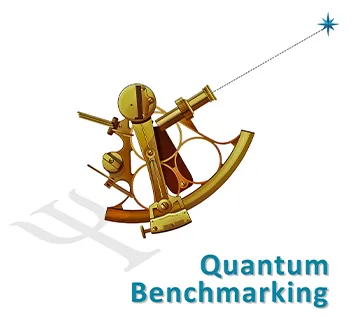Summary
It has been credibly hypothesized that quantum computers will revolutionize multiple scientific and technical fields within the next few decades.
Examples include machine learning, quantum chemistry, materials discovery, molecular simulation, many-body physics, classification, nonlinear dynamics, supply chain optimization, drug discovery, battery catalysis, genomic analysis, fluid dynamics, and protein structure prediction. For many of these examples, like quantum chemistry and protein structure prediction, quantum computers are hypothesized to be useful simulators because the target problem is inherently quantum mechanical.
Other examples, like classification and nonlinear dynamics, center around problems that have nothing to do with quantum systems, but involve combinatorial complexity that is intractable for conventional computers.
For each of the fields listed above, it is unclear exactly what size, quality, and configuration of quantum computer – if any – will enable the hypothesized revolutionary advances.
The Quantum Benchmarking program will estimate the long-term utility of quantum computers by creating new benchmarks that quantitatively measure progress towards specific, transformational computational challenges. In parallel, the program will estimate the hardware-specific resources required to achieve different levels of benchmark performance.
Yet to be peer-reviewed
Quantum computing applications
- Feasibility of accelerating homogeneous catalyst discovery with fault-tolerant quantum computers
Zapata AI - Feasibility of accelerating incompressible computational fluid dynamics simulations with fault-tolerant quantum computers
L3Harris - Prospects for NMR Spectral Prediction on Fault–Tolerant Quantum Computers
MIT Lincoln Laboratory - Quantifying fault tolerant simulation of strongly correlated systems using the Fermi-Hubbard model
North Carolina State University - Applications and resource estimates for open system simulation on a quantum computer
University of Southern California - Potential Applications of Quantum Computing at Los Alamos National Laboratory
Los Alamos National Laboratory - Fault-tolerant resource estimation using graph-state compilation on a modular superconducting architecture
Rigetti & Co., LLC - Quantum computing for corrosion-resistant materials and anti-corrosive coatings design
Boeing Research and Technology - Quantum Resources Required for Binding Affinity Calculations of Amyloid-Beta
HRL Laboratories, LLC - Fullerene-encapsulated Cyclic Ozone for the Next Generation of Nano-sized Propellants via Quantum Computation
- HRL Laboratories, LLC
Open-source software projects
For estimating quantum hardware requirements and building quantum circuits
- pyLIQTR
MIT Lincoln Laboratory - BenchQ
Zapata AI - Jabalizer
University of Technology Sydney - Rigetti Resource Estimation
Rigetti & Co., LLC - Quantum Computing Application Specifications
Los Alamos National Laboratory - Lattice Surgery Compiler
Aalto University - Pandora
Aalto University
For estimating quantum hardware requirements and building quantum circuits
- pyLIQTR
MIT Lincoln Laboratory - BenchQ
Zapata AI - Jabalizer
University of Technology Sydney - Rigetti Resource Estimation
Rigetti & Co., LLC - Quantum Computing Application Specifications
Los Alamos National Laboratory - Lattice Surgery Compiler
Aalto University - Pandora
Aalto University

Resources
This program is now complete.
This content is available for reference purposes. This page is no longer maintained.
